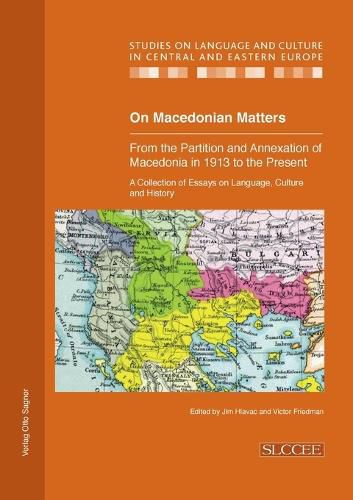Readings Newsletter
Become a Readings Member to make your shopping experience even easier.
Sign in or sign up for free!
You’re not far away from qualifying for FREE standard shipping within Australia
You’ve qualified for FREE standard shipping within Australia
The cart is loading…






This title is printed to order. This book may have been self-published. If so, we cannot guarantee the quality of the content. In the main most books will have gone through the editing process however some may not. We therefore suggest that you be aware of this before ordering this book. If in doubt check either the author or publisher’s details as we are unable to accept any returns unless they are faulty. Please contact us if you have any questions.
Since the fall of communism in 1989, cross-border co-operation between neighbouring states has become a feature of the ‘common European home’ project. A prominent exception to this trend is Macedonia which today is still subjected to blockade politics and the absence of respect and recognition for Macedonian language, nationality and ethnicity. As a part of Europe under the control of the Ottomans until 1912, Macedonia was less captured by the allure of national romanticism than other areas of Europe, and an embryonic notion of multi-national statehood appeared there. This notion was based on local and regional practices that encompassed groups with different linguistic, cultural and religious heritages rather than being based exclusively on ethnic or religious affiliations. Such a conception of ‘nation’
which could perhaps provide an aspirational model for many post-industrial, multi-cultural societies in Western Europe in the 21st century
was suppressed by the 19th-century nationalism that still characterises much of European politics. This multi-disciplinary book of 15 papers features contributions from historians, political analysts, social theorists, linguists, educationalists and legal specialists tracing the consequences of the Balkan Wars (1912-1913) and the partition of Macedonia on the social, cultural and linguistic landscape of this region.
$9.00 standard shipping within Australia
FREE standard shipping within Australia for orders over $100.00
Express & International shipping calculated at checkout
This title is printed to order. This book may have been self-published. If so, we cannot guarantee the quality of the content. In the main most books will have gone through the editing process however some may not. We therefore suggest that you be aware of this before ordering this book. If in doubt check either the author or publisher’s details as we are unable to accept any returns unless they are faulty. Please contact us if you have any questions.
Since the fall of communism in 1989, cross-border co-operation between neighbouring states has become a feature of the ‘common European home’ project. A prominent exception to this trend is Macedonia which today is still subjected to blockade politics and the absence of respect and recognition for Macedonian language, nationality and ethnicity. As a part of Europe under the control of the Ottomans until 1912, Macedonia was less captured by the allure of national romanticism than other areas of Europe, and an embryonic notion of multi-national statehood appeared there. This notion was based on local and regional practices that encompassed groups with different linguistic, cultural and religious heritages rather than being based exclusively on ethnic or religious affiliations. Such a conception of ‘nation’
which could perhaps provide an aspirational model for many post-industrial, multi-cultural societies in Western Europe in the 21st century
was suppressed by the 19th-century nationalism that still characterises much of European politics. This multi-disciplinary book of 15 papers features contributions from historians, political analysts, social theorists, linguists, educationalists and legal specialists tracing the consequences of the Balkan Wars (1912-1913) and the partition of Macedonia on the social, cultural and linguistic landscape of this region.